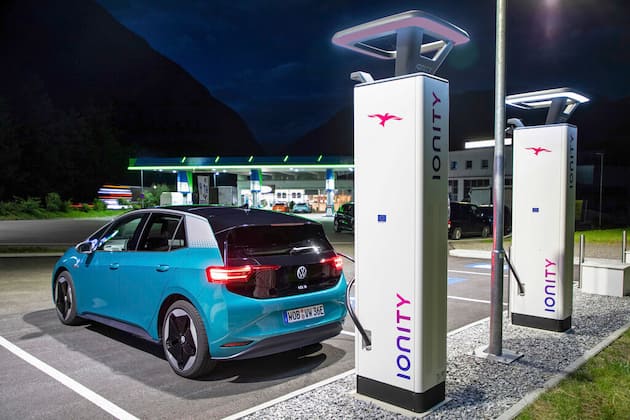Charging instead of refueling? In the energy crisis year 2022, that didn’t seem to make a big difference in cost for some car owners, because both electricity and fuel became drastically more expensive. That could change in the medium term. What exactly do industry experts expect?
According to estimates by the consulting firm PwC, the energy costs for operating e-cars will in all likelihood remain below those for combustion vehicles in the coming years.
The main reason for this is that electricity prices will fall again in the medium term, which industry observers are assuming. It is assumed that from 2024 onwards, oil prices and thus fuel prices will also fall at the same time. In relation to the monthly operating costs, charging current with comparable car use is already at a lower level than the expenditure for petrol or diesel – and it should become cheaper in the future.
“The average energy costs of an electric car are and will probably remain lower than those of a combustion engine in the long term,” says the analysis from Munich, which is available to the German Press Agency.
This year, charging is likely to become even more expensive for the time being because network charges are rising. “But from 2024, the charging current price should fall again, in particular due to falling procurement costs.” In principle, this also applies to the price of petrol. But the extent of the expected relaxation is probably less than for crude oil because of the simultaneous increase in CO2 taxes on finished fuels.
The preliminary conclusion of PwC: “The comparison of energy costs for electric and combustion engine vehicles shows a clear advantage for electromobility. We expect this advantage to last for years to come.”
However, this finding is linked to a number of conditions. The car manufacturers would have to make a broader range of models, and the expansion of the charging infrastructure would have to progress quickly. “This includes making suitable public areas available and accelerating planning and approval processes,” emphasized e-mobility expert Heiko Seitz.
Other experts had recently expressed skepticism. The car market professor Ferdinand Dudenhöffer expects a noticeable cooling off in demand because subsidies for hybrid cars will expire and for pure electric vehicles will be reduced.
The auditors from Deloitte recently said on the subject of energy costs: “If electricity prices remain at this high level, we will only see 7.6 million electric cars in Germany in 2030.” In order to achieve the target of 15 million targeted by politicians by then, “Further measures by the government and companies are necessary from 2024 onwards”.
On our e-mobility portal EFAHRER.com you will find all e-vehicles available on the German market
You can also arrange a test drive for the car of your choice free of charge and thus start e-mobility in an uncomplicated manner.








